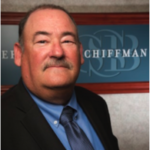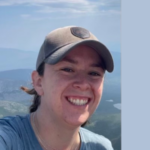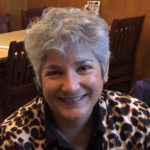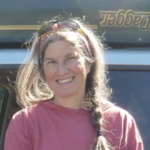About WeConservePA
Our Work
WeConservePA helps people care for, wisely use, and enjoy what nature offers. We help organizations and individuals to effectively and efficiently conserve land, protect and restore waterways, implement sustainable practices, and connect people to the outdoors. We foster understanding of conservation and advocate for pro-conservation governmental policy to promote a high quality of life for all.
Who We Are
WeConservePA is a community of conservation volunteers, professionals, and supporters. United around common interests and needs, we present a powerful force for conservation, and in sharing our knowledge and experiences, we are better equipped to make more and better conservation happen.
WeConservePA Leadership and Staff
Board of Directors
Seventy-five of Pennsylvania’s most active conservation organizations count themselves as dues-paying members of WeConservePA. These organizations elect the ten individuals who serve on WeConservePA’s board of directors.
Oliver Bass, President
Oliver is president of Natural Lands. Before becoming president, he was the vice president of communications and engagement, where he oversaw communication and engagement efforts, including publications and Force of Nature volunteer program. He also works to foster partnerships between Natural Lands and area organizations, and advocates for natural resource conservation and related causes to state and national policy makers.
Oliver takes much satisfaction from his role in making Natural Lands’ preserves more accessible for people to enjoy. “The results of our work are tangible, permanent, and accessible to everyone regardless of means or background. It doesn’t get any better than that!”
Prior to joining Natural Lands in 1997, Oliver was executive director of the Philadelphia Singers and Performing Arts League of Philadelphia. Before that, he worked in radio.
He earned a B.S. in communications from Northwestern University.
Reneé Carey, Vice President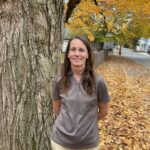
Reneé has been with the Northcentral Pennsylvania Conservancy since 1994, becoming Executive Director in 1998. She has served on numerous WeConservePA committees and held many roles in her time with the organization over the years. Additionally, Reneé sits on the Pennsylvania Forestry Association Board and serves on the Commonwealth of Pennsylvania’s Forest Stewardship Committee.
Thomas D. Saunders, Secretary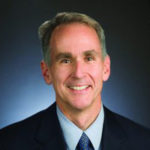
Tom Saunders came to the Western Pennsylvania Conservancy from Florida where he was community development director for the City of Gainesville. In that role, Tom directed planning, growth management, redevelopment, housing, historic preservation, and neighborhood planning. Prior to that, Tom was director of the Maryland Environmental Trust, a statewide land trust that protects open space and supports the conservation work and capacity growth of 40 local land trusts across the state. As one of the largest conservation and voluntary preservation easement-holding organizations in the country, the Maryland Environmental Trust works with property owners across the state on permanent land protection. Tom was also a land use, historic preservation, and redevelopment attorney with Arent/Fox and Jones, Day, Reavis & Pogue. Tom holds an undergraduate degree from Vanderbilt University, a masters in public affairs and urban and regional planning from Princeton, and a J.D. from Stanford.
John Conner, Treasurer
John was one of the original 1996 incorporators of the Manada Conservancy, and served as its president from its inception through 2007. He is a former member of the East Hanover Environmental Advisory Council and was active in efforts to update the zoning there. He graduated from the University of Pittsburgh in 1975 and is retired from the Internal Revenue Service, where he was employed for 35 years. Along with land preservation, John’s interests include working with other non-profit organizations, organic gardening and his golden retrievers. John serves on the Preservation Committee and chairs both Manada’s Administration and Finance Committees.
Stephanie Armpriester, Chief Impact Officer, Brandywine Conservancy & Museum of Art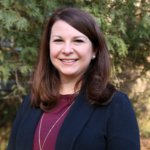
Stephanie has over 13 years’ experience in the non-profit, private and public sectors in Pennsylvania, New York, and New Jersey. She specializes in agricultural and conservation easement preparation, historic preservation, and land use planning. In her role as Director and Conservation and Stewardship at the Brandywine Conservancy, she works with landowners to preserve their land in perpetuity. Stephanie also provides technical assistance to municipalities and other stakeholders to connect conservation to water quality improvement and assists them in creating innovative solutions to meet local and regional water quality goals. She holds a Master’s degree in Historic Preservation Planning from Cornell University.
Gail Farmer, Executive Director, Wissahickon Trails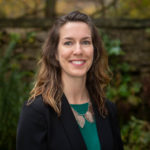
Gail brings 20 years of experience in the environmental nonprofit sector. When asked to summarize her role in a single word, she said “relationships.” She spends her time in partnership with staff, board, donors, and other community leaders to ensure that Wissahickon Trails is able to effectively fulfill its mission today, tomorrow, and for many years to come. Gail currently serves on the Montgomery County Planning Commission’s Open Space Board, Philadelphia Water’s Green City, Clean Waters Steering Committee, the Water Quality Advisory Committee of the Delaware River Basin Commission, and is an advisor to the Wissahickon Clean Water Partnership. She is a Senior Fellow of the Environmental Leadership Program and a Community Scholars Fellow of the University of Pennsylvania. In 2018, she received PennFuture’s Woman of Community Engagement and Environmental Education Leadership Award. Gail earned her M.Sc. in Ecology from S.U.N.Y ESF in Syracuse.
Ellen Ferretti, Executive Director, North Branch Land Trust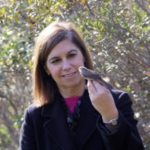
Ellen M. Ferretti was named the executive director of North Branch Land Trust in 2021. She brings more than 25 years of natural resource management and conservation/environmental experience. She served as secretary for Department of Conservation and Natural Resources (DCNR) and deputy secretary for Parks and Forestry for the Commonwealth of Pennsylvania. Under her leadership, land conservation was a key priority and, working closely with staff and stakeholders, significant natural areas were protected as public lands. She also has proven success in strategic planning, partnerships and collaborations, and fiscal management and operations. Ferretti oversees the conservancy’s important work to protect water, preserve land, and engage communities. The organization’s three programs—Land Conservation, Land Stewardship, and Municipal Assistance—are renowned for their multi-tiered approach to conservation through working with private landowners who wish to see their lands protected forever, and providing innovative community planning services to municipalities and other government agencies. She is a graduate of Wilkes College with a B.S. in environmental science.
Bill Gladden, Executive Director, French & Pickering Creeks Conservation Trust
Bill has over 30 years of public and private sector experience in land use and preservation. He was born and raised in western Pennsylvania and holds a master’s degree in urban and environmental planning from the University of Virginia. Bill began the Chester County chapter of his career in 1994 and was asked to establish the county’s department of open space preservation in 2004. The department is responsible for monitoring land preserved through County programs as well as the administration of grant programs that represent an investment of over $200 million and have helped finance the preservation of over 55,000 acres of farms, forests, parks and preserves. In 2018, Bill was named executive director of French & Pickering Creeks Conservation Trust.
Sean P. Kenny, Executive Director, Farm and Natural Lands Trust of York County
 Sean has been with Farm & Natural Lands Trust of York County since 2008. FNLT has more than 10,000 acres under conservation easements on over 130 properties property of agricultural and environmental importance. Prior to joining FNLT, Sean was employed with the York County Chamber of Commerce following graduation from York College of Pennsylvania. Sean lives on a FNLT preserved farm, which is bisected by the Heritage Rail Trail, with his wife and two young children. Sean has or had leadership positions with local arts, young professional and culture organizations, as well as sitting on the York County Planning Commission.
Sean has been with Farm & Natural Lands Trust of York County since 2008. FNLT has more than 10,000 acres under conservation easements on over 130 properties property of agricultural and environmental importance. Prior to joining FNLT, Sean was employed with the York County Chamber of Commerce following graduation from York College of Pennsylvania. Sean lives on a FNLT preserved farm, which is bisected by the Heritage Rail Trail, with his wife and two young children. Sean has or had leadership positions with local arts, young professional and culture organizations, as well as sitting on the York County Planning Commission.
Christopher M. Kocher, President, Wildlands Conservancy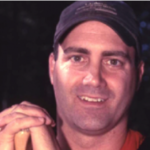
No stranger to the Lehigh Valley or Wildlands, president Christopher Kocher’s more than 15-year tenure began when he joined the organization as an environmental scientist in 1995. Throughout his career, he’s raised community awareness about the region’s specific conservation needs, and has notably developed several key, broad-based partnerships that continue to be vital to fulfilling our land protection, environmental stewardship and education mission.
His conservation work has been recognized statewide by the Pennsylvania Department of Environmental Protection, the Pennsylvania Environmental Council, and other like-minded organizations.
Chris and his wife, Sheila, live in Whitehall and are parents to Ella, Jack and their loveable yellow lab, Daisy. As a family, they enjoy connecting with nature on the Ironton Rail Trail and the nearby Coplay Creek.
Kim Murphy, President, Berks Nature
Kim has extensive experience in fundraising, community relations, watershed wide regional partnerships, education and in particular nature based educational programs.
Kim joined Berks Nature (then Berks County Conservancy) in January 2004. As president, she works with a dedicated staff to improve and protect our land and water resources, to educate the community about land use and its implications, and to connect people to nature thus, conserving Berks County’s unique cultural and environmental resources for the benefit of future generations.
To fulfill that mission, and to better address the changing needs of their constituency, Kim led the organization through a name change in 2015 changing from The Berks County Conservancy to Berks Nature. Berks Nature recently completed a nearly $5 million capital campaign to raise money for a new nature center, “The Nature Place” which opened in September 2017 and has achieved LEED GOLD certification. In 2018 they opened a Nature Preschool. In 2021 the organization embarked on a $4.5 million expansion of The Nature Place.
The Berks Nature team has focused on preserving agricultural land, forests and open space; protecting the quality of our streams and ground water; preserving historic landmarks and scenic landscapes; environmental education and by promoting those values that contribute to a sustainable future for our community.
Kim serves on the policy committee and board of directors of WeConservePA and shares her time with many other organizations in the community. Kim is a skilled fundraiser with nearly 20 years in non-profit management. Kim lives with her husband, Kevin in a 218-year-old stone farmhouse in Jefferson Township, Berks County; her sons Carver and McQuillin are adults.
Fritz Schroeder, President & CEO, Lancaster Conservancy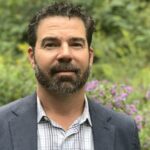
Fritz joined the Lancaster Conservancy in 2012 as the Director of Urban Greening and was responsible for developing residential and institutional greening programs. He has an extensive background in landscaping and tree management, and has overseen the design and installation of various stormwater capture and infiltration techniques from rain gardens to green roofs. In 2017 with the help of many community partners Fritz helped launch Lancaster Water Week an effort to connect more people with the amazing natural resources, streams and rivers of Lancaster County. In 2018 he accepted a new role at the Conservancy as Senior Vice President of Community Impact leading the marketing, development and engagement efforts as the Conservancy expanded rapidly. In 2023 Fritz was promoted to President & CEO.
Policy Council
WeConservePA’s Policy Council is charged with studying and discussing opportunities to improve public policy at all levels of government and private measures that could be taken by the land conservation community to improve the effectiveness and efficiency of conservation efforts. The committee makes recommendations to WeConservePA board and staff on these matters.
Committee members are appointed by the board of directors. Individuals wishing to serve should contact WeConservePA for more information.
In addition to members of the Board of Directors, the following individuals serve on the committee.
Betsy Aiken, Executive Director, Westmoreland Land Trust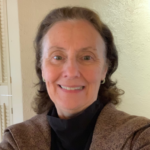
Betsy studied at the University of Pittsburgh for a B.A. in English Literature and an M.B.A. in Operations Research. Betsy’s experience includes managing Quality Assurance for a precision manufacturer, serving as Chief Administrator for the Municipality of Murrysville, and work at a strategic planning consulting practice.
Betsy has served on Murrysville’s Parks & Recreation Commission, the PA Trails Advisory Committee, the boards of the Westmoreland Conservancy and the Smart Growth Partnership of Westmoreland County, and as a founding member of Friends of Murrysville Parks and the Murrysville Trail Alliance. She serves on WeConservePA’s Policy Advisory Committee and the Citizen’s Advisory Board for Westmoreland County Parks and Recreation. Betsy lives in Murrysville and in her free time enjoys travel, gardening, hobby farming, and spending time outdoors.
George Asimos, Attorney at Law
 In his real estate and land use practice spanning more than 20 years, George Asimos divides his practice between development advocacy and transactional work. He is particularly experienced representing clients in the areas of telecommunications, oil and gas, as well as the growing Marcellus Shale industry.
In his real estate and land use practice spanning more than 20 years, George Asimos divides his practice between development advocacy and transactional work. He is particularly experienced representing clients in the areas of telecommunications, oil and gas, as well as the growing Marcellus Shale industry.
On the development side, he represents developers, land owners and others seeking project approvals from municipalities in Eastern and Central Pennsylvania in matters relating to zoning, subdivision, and land development. His projects include telecommunications facilities, quarries, warehouses, and residential communities. As a result of his experience in the municipal approval of telecommunications facilities, representing most of the largest telecommunications and tower companies, he has been heavily involved in litigation on behalf of telecommunications companies under the antenna siting provisions of the Federal Telecommunications Act. Though his clients are limited to private sector developers, industrial companies and landowners, his work is informed by his 17 years in Township government and eight years on the Chester County Planning Commission Board.
On the transactional side, George represents real estate owners and investors in the purchase, sale, and leasing of all basic categories of real estate, including office, commercial, and industrial properties, raw land for development, and unique properties such as quarries, telecommunications towers and golf courses.
A substantial part of George’s practice also involves advising land owners and nonprofit land trusts on the donation of conservation easements and related real estate planning. He has drafted, or advised landowners on, more than 200 conservation easement donations protecting more than 40,000 acres of land in more than 10 states.
Steve Carter, President, North American Land Trust
Steve brings more than 20 years of conservation planning and non-profit management to NALT and has spearheaded NALTs expansion of over 500 conservation projects in 24 states. Steve is passionate about preserving natural lands, ecological restoration and mitigation banking.
Steve works with government agencies, municipalities, major corporations, private landowners and non-government organizations to conserve and protect natural lands and open space. Steve has spoken at national conferences about mitigation banking, and he helped NALT launch conservation projects in 12 U.S Army Corps of Engineer districts.
In his first year as president, Steve created and led a strategic partnership of government agencies and private donors that raised more than $4 million to preserve 72 acres of the Brandywine Battlefield. In 2022, NALT will open its first public preserve, Brinton Run Preserve, offering a public hiking trails at the historic battle site.
Steve earned a bachelor of science degree from Colorado State University, where he majored in natural resource management and minored in forestry. Steve and his wife, Elisabeth, have three wonderful children. When he is not preserving natural lands, Steve volunteers in his local community and enjoys fostering rescue dogs.
Brenda Costa, Executive Director, French Creek Valley Conservancy
 Brenda Costa joined French Creek Valley Conservancy in 2016 as the Executive Director. Previously, Brenda worked in environmental and geologic consulting for more than 20 years, with a concentration on groundwater. She earned her Bachelor’s degree in Geology from Allegheny College and her Master’s Degree in Business Administration from Penn State, and has served on the Board of the Pennsylvania Council of Professional Geologists. Brenda focuses on land protection and conservation efforts in northwest Pennsylvania, as well as providing educational programs to schools and community groups. She enjoys spending as much time as possible outdoors- traveling, hiking, kayaking, and skiing- especially in the company of her husband and two sons.
Brenda Costa joined French Creek Valley Conservancy in 2016 as the Executive Director. Previously, Brenda worked in environmental and geologic consulting for more than 20 years, with a concentration on groundwater. She earned her Bachelor’s degree in Geology from Allegheny College and her Master’s Degree in Business Administration from Penn State, and has served on the Board of the Pennsylvania Council of Professional Geologists. Brenda focuses on land protection and conservation efforts in northwest Pennsylvania, as well as providing educational programs to schools and community groups. She enjoys spending as much time as possible outdoors- traveling, hiking, kayaking, and skiing- especially in the company of her husband and two sons.
Grant DeCosta, Director, Brandywine Conservancy
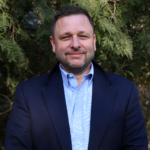 Grant has over 16 years’ experience in conservation and environmental policy work in the non-profit, private, and public sectors. Mr. DeCosta specializes in land use planning, conservation, and implementation of land restoration projects for water quality improvement. In his role at the Conservancy, Grant works with landowners, municipalities, regulators and policy makers to provide a holistic approach to natural resource conservation and protection. He holds a B.S. in Forestry and Wildlife Science from Virginia Tech.
Grant has over 16 years’ experience in conservation and environmental policy work in the non-profit, private, and public sectors. Mr. DeCosta specializes in land use planning, conservation, and implementation of land restoration projects for water quality improvement. In his role at the Conservancy, Grant works with landowners, municipalities, regulators and policy makers to provide a holistic approach to natural resource conservation and protection. He holds a B.S. in Forestry and Wildlife Science from Virginia Tech.
Evan Endres, Pennsylvania Director of Government Relations and Policy, The Nature Conservancy PA/DE
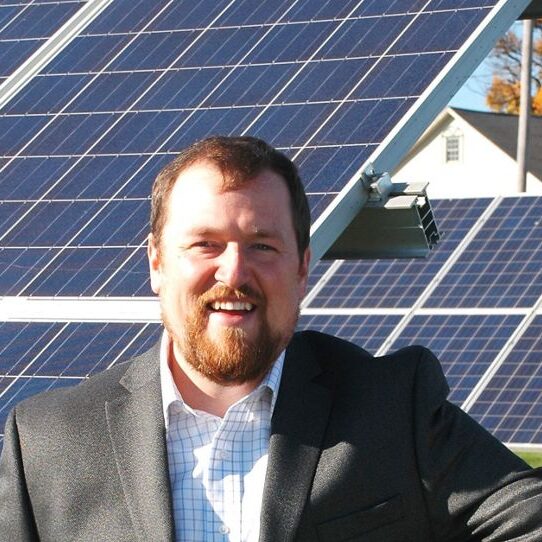 Evan works to help Pennsylvania achieve reduction of the emissions that cause climate change. He works with constituencies, regulators and elected leaders to build Pennsylvania climate leadership and pass policies that contribute to healthy climate future for nature and people. “I enjoy building a better climate future and helping people make the connection between their love of nature and our need to take action on climate.”
Evan works to help Pennsylvania achieve reduction of the emissions that cause climate change. He works with constituencies, regulators and elected leaders to build Pennsylvania climate leadership and pass policies that contribute to healthy climate future for nature and people. “I enjoy building a better climate future and helping people make the connection between their love of nature and our need to take action on climate.”
Kate Etherington, President and Executive Director, Willistown Conservation Trust
 After serving as a volunteer at the Trust since 2014, Kate officially joined our team in 2020 as Associate Executive Director and later transitioned to the role of Executive Director in 2021. Kate comes to us with an extensive background in nonprofit management, including serving as the Shelter Services Coordinator at Sojourner Center and the Senior Program Director and Interim Executive Director at Philadelphia Physicians for Social Responsibility. Additionally, she holds a bachelor’s degree in psychology from Colgate University and a master’s degree in nonprofit leadership from the University of Pennsylvania. As Executive Director, Kate is responsible for overseeing the day-to-day management of the Trust and planning for its successful future. Outside of the office, she spends plenty of time outdoors, hiking, horseback riding, skiing, reading, and spending time with her husband and three daughters on their small farm.
After serving as a volunteer at the Trust since 2014, Kate officially joined our team in 2020 as Associate Executive Director and later transitioned to the role of Executive Director in 2021. Kate comes to us with an extensive background in nonprofit management, including serving as the Shelter Services Coordinator at Sojourner Center and the Senior Program Director and Interim Executive Director at Philadelphia Physicians for Social Responsibility. Additionally, she holds a bachelor’s degree in psychology from Colgate University and a master’s degree in nonprofit leadership from the University of Pennsylvania. As Executive Director, Kate is responsible for overseeing the day-to-day management of the Trust and planning for its successful future. Outside of the office, she spends plenty of time outdoors, hiking, horseback riding, skiing, reading, and spending time with her husband and three daughters on their small farm.
Andrew Fetterman, Vice President for Land and Conservation, Berks Nature
At Berks Nature, Andrew’s work centers on the oversight of the land and water conservation programs in Berks County and beyond. In his role, he facilitates a proactive approach to conserving and stewarding Berks County’s exceptional natural and cultural assets by building and maintaining relationships with private individuals as well as local, regional and state organizations.
Andrew holds an undergraduate degree in Geology from St. Lawrence University and a Master of Arts in Earth Science Degree from the State University of New York, College of Oneonta. He has been a Professional Geologist in Pennsylvania since 2002.
Andrew volunteers for various organizations including teaching hunter trapper education with the Pennsylvania Game Commission and painting songbird decoys for the bird conservation program at Willistown Conservation Trust. He and his spouse Alison enjoy birding, gardening and camping in addition to lots of other fun outdoorsy stuff with their two children and budding naturalists Gus and Etta.
Brian Gallagher, Public Policy and Government Relations Manager, Western Pennsylvania Conservancy
 Brian has been with WPC since 1999, first in the garden and greenspace and conservation programs before joining the public policy team in 2004. He works on a number of issues including the federal farm bill, abandoned mine lands, and wildlife funding, and is also involved with WPC’s accreditation efforts.
Brian has been with WPC since 1999, first in the garden and greenspace and conservation programs before joining the public policy team in 2004. He works on a number of issues including the federal farm bill, abandoned mine lands, and wildlife funding, and is also involved with WPC’s accreditation efforts.
Prior to joining the conservancy, he worked for an arts agency in Florida. He has a degree in cultural anthropology from Florida State University. He grew up in the Mid-Mon Valley, south of Pittsburgh, where he frequently visited Mingo Creek County Park.
Debra Wolf Goldstein, Esq., Executive Director, Philadelphia Environmental Film Festival
 Debra Wolf Goldstein, Esq., is an attorney and consultant specializing in land conservation and policy. She also is co-founder and executive director of the Philadelphia Environmental Film Festival (www.philaenvirofilmfest.org), which brings the planet to Philadelphia through the power of environmental film.
Debra Wolf Goldstein, Esq., is an attorney and consultant specializing in land conservation and policy. She also is co-founder and executive director of the Philadelphia Environmental Film Festival (www.philaenvirofilmfest.org), which brings the planet to Philadelphia through the power of environmental film.
Previously she served as executive director of Delaware Canal 21; as general counsel to the Heritage Conservancy; and as regional advisor for PA DCNR’s Bureau of Recreation and Conservation. She started her career as an attorney with the law firm of Wolf Block in their litigation, real estate, and environmental departments.
Debra chaired the Land Use Committee of the Philadelphia Park & Recreation Commission, where she helped draft and guide passage of the City’s first parkland protection ordinance. She also served for over a decade as vice president of the Fairmount Park Commission. She is a sought-after speaker and teacher on topics including public access liability, conservation easement violations, appraisals, and conflicts of interest.
Debra co-hosted a public television series on environmental issues facing Pennsylvania. She has written numerous scholarly and popular publications on land conservation, including several guides for WeConserve. Most recently she co-authored the widely-used manual Universal Access for Trails & Shared Use Paths and the guide on OPDMDs. Debra holds a J.D., cum laude, from Georgetown University Law Center and a B.A. from Brown University. To learn more please visit www.Conservmatters.com.
Kathie Gonick, Director of Land Protection and In-House Counsel, Lancaster Conservancy
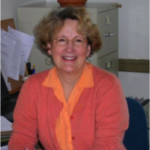 As director of land protection, Kathie works with landowners, businesses, funders, and local and state government to identify and protect Lancaster County’s most vital natural lands. Kathie, a native of Lancaster County, previously held a position at the Brandywine Conservancy in Chadds Ford, PA, drafting subdivision and land development, and zoning ordinances, and working on general land use and historic preservation planning. Kathie also held the position of cultural resource and environmental planner/archaeologist for the Pinelands Commission and developed a program in archaeology for Cheyney University teaching several courses and establishing a laboratory and university guidelines.
As director of land protection, Kathie works with landowners, businesses, funders, and local and state government to identify and protect Lancaster County’s most vital natural lands. Kathie, a native of Lancaster County, previously held a position at the Brandywine Conservancy in Chadds Ford, PA, drafting subdivision and land development, and zoning ordinances, and working on general land use and historic preservation planning. Kathie also held the position of cultural resource and environmental planner/archaeologist for the Pinelands Commission and developed a program in archaeology for Cheyney University teaching several courses and establishing a laboratory and university guidelines.
Kathie practiced land-use law for over 25 years before receiving her M.A. in Anthropology/Archaeology from Temple University where she is a doctoral candidate. Kate holds a B.A. from Sweet Briar College and a J.D. from Penn State University Dickinson School of Law. Kathie enjoys all types of winter activities, including downhill and cross-country skiing and hiking. Other hobbies include gardening and writing. Kathie and her husband, Jeff, live in Manheim Township.
John Goodall, Western Area Manager, Brandywine Conservancy & Museum of Art
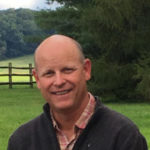 John conducts conservation easement outreach, participates in marketing efforts associated with the Conservancy’s Municipal Assistance Program, assists with monitoring, enforcement, and administration of conservation easements within our program area which encompasses approximately 24 townships in southwestern Chester County as well as adjacent townships in Lancaster County. He also coordinates and manages agricultural preservation outreach efforts that include conservation planning and implementation of best management practices to mitigate agricultural impacts on water quality. John is Director at the Conservancy’s 771-acre Laurels Preserve located in nearby East Fallowfield, Newlin and West Marlborough Townships and oversees the stewardship of the natural areas and trails.
John conducts conservation easement outreach, participates in marketing efforts associated with the Conservancy’s Municipal Assistance Program, assists with monitoring, enforcement, and administration of conservation easements within our program area which encompasses approximately 24 townships in southwestern Chester County as well as adjacent townships in Lancaster County. He also coordinates and manages agricultural preservation outreach efforts that include conservation planning and implementation of best management practices to mitigate agricultural impacts on water quality. John is Director at the Conservancy’s 771-acre Laurels Preserve located in nearby East Fallowfield, Newlin and West Marlborough Townships and oversees the stewardship of the natural areas and trails.
Dawn Gorham, Director of Land Preservation, Wildlands Conservancy
 Before joining Wildlands in summer 2015, Dawn served as the executive director of Pocono Heritage Land Trust where she was responsible for the planning and implementation of a comprehensive land conservation program, as well as the day-to-day management of the small land trust. Today, Dawn’s years of land conservation expertise are supporting Wildlands’ mission to protect critical natural areas and waterways. She holds a Ph.D. in environmental and forest biology from SUNY Environmental Science and Forestry and resides in the Poconos.
Before joining Wildlands in summer 2015, Dawn served as the executive director of Pocono Heritage Land Trust where she was responsible for the planning and implementation of a comprehensive land conservation program, as well as the day-to-day management of the small land trust. Today, Dawn’s years of land conservation expertise are supporting Wildlands’ mission to protect critical natural areas and waterways. She holds a Ph.D. in environmental and forest biology from SUNY Environmental Science and Forestry and resides in the Poconos.
Kelly Herrenkohl, Vice President of Communications and Engagement, Natural Lands
 As Vice President of Communications and Engagement, Kelly oversees a team of people who focus on connecting people to nature—from events and volunteers, to communications and graphic design. She also oversees the organization’s Urban Program, which is working to foster opportunities for city residents to enjoy the outdoors.
As Vice President of Communications and Engagement, Kelly oversees a team of people who focus on connecting people to nature—from events and volunteers, to communications and graphic design. She also oversees the organization’s Urban Program, which is working to foster opportunities for city residents to enjoy the outdoors.
Prior to joining Natural Lands, Kelly spent a decade working for Vetri Community Partnership, which promotes health and wellness through teaching cooking skills to children and families. “While cooking and land preservation may seem at odds with one another, they are actually the flip sides of the same public health coin…getting your body moving and engaging with nature is just as important to physical, mental, and emotional health as feeding yourself more fruits and vegetables,” she shares.
Kelly’s favorite place to be outside is her backyard garden. “It’s been a labor of love for the last 15 years. My kids have joked that I love working in my garden more than I love them. That is totally not true!”
She has a Bachelor of Arts in English Literature and International Studies from Washington University in St. Louis, MO, and a Master of Arts in English Literature from the University of Missouri.
Abbie Kessler, Land Preservation Director, Brandywine Red Clay Alliance
Abbie has a background in archaeology and history to coordinate all aspects of easement projects to conserve both natural and historic resources in support of the Brandywine Red Clay Alliance’s mission.
Bill Kunze, President & CEO, Heritage Conservancy
 Bill joined Heritage Conservancy as President & CEO in fall 2021, after 15 years as a senior leader with The Nature Conservancy. He brings deep experience helping organizations accelerate the pace and scale of land conservation and developing innovative strategies around conservation funding, community engagement, sustainable forestry and agriculture, urban conservation, and climate resilience.
Bill joined Heritage Conservancy as President & CEO in fall 2021, after 15 years as a senior leader with The Nature Conservancy. He brings deep experience helping organizations accelerate the pace and scale of land conservation and developing innovative strategies around conservation funding, community engagement, sustainable forestry and agriculture, urban conservation, and climate resilience.
Before becoming a conservation leader, he was a Division Chief at the Federal Communications Commission and worked as a management consultant, an attorney, and in academic publishing. Bill brings to Heritage Conservancy a passion for nature and history, the two foundations of the Conservancy’s mission: he earned undergraduate and graduate degrees in history, and as a young child, he fell in love with nature through birding excursions to Hawk Mountain in Berks County and Brigantine (now Forsythe) National Wildlife Refuge near Atlantic City.
Mike Kuzemchak, Associate Vice President for Government and Community Relations, Western Pennsylvania Conservancy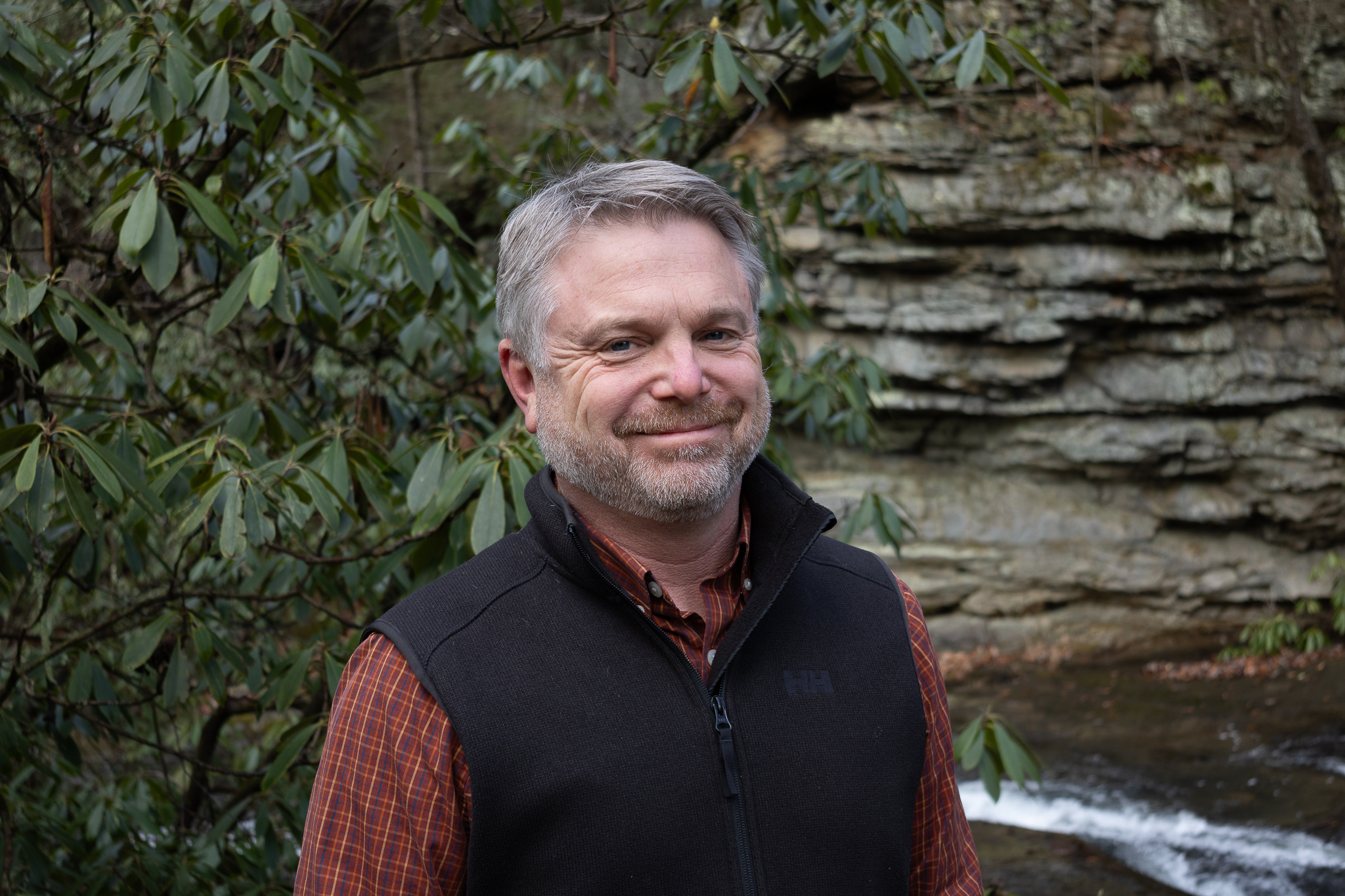
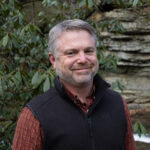
In this role, Mike provides oversight of WPC’s public policy work, along with the Conservancy’s conservation science and natural heritage programs. He also leads the sustainability initiatives across WPC’s offices.
Mike has worked with the Conservancy since 2004, most recently as the Senior Director of Operations at Fallingwater. Prior to his role at Fallingwater, he worked in WPC’s Land Conservation department, focusing on the Laurel Highlands of southwest PA. Previously he worked as the Projects Coordinator for Indiana County Parks and Trails, where he managed development of the Hoodlebug Trail, a six-mile rails-to-trails project. He began his career in conservation as an instructor/naturalist at Echo Hill Outdoor School, an environmental education center on Maryland’s Eastern Shore.
He holds a master of science in environmental planning and a bachelor of science in secondary English education, both from Indiana University of Pennsylvania. He has served on the Boards of the Westmoreland Land Trust and the Ligonier Valley Library. He lives in Rector, PA.
Annie Socci Maloney, PhD, Executive Director, Foundation for Sustainable Forests
 Annie began working with the Foundation for Sustainable Forests in 2016, first as Conservation Outreach Manager in 2016, and later as the organization’s first executive director. Her primary focus is on the conservation of working forests, which will be managed sustainable in perpetuity for the benefit of both the forest ecosystem and the surrounding community. In addition, she coordinates educational offerings and outreach to private forest landowners who are seeking to achieve their conservation objectives through active management.
Annie began working with the Foundation for Sustainable Forests in 2016, first as Conservation Outreach Manager in 2016, and later as the organization’s first executive director. Her primary focus is on the conservation of working forests, which will be managed sustainable in perpetuity for the benefit of both the forest ecosystem and the surrounding community. In addition, she coordinates educational offerings and outreach to private forest landowners who are seeking to achieve their conservation objectives through active management.
No stranger to natural lands and wild places, before joining FSF, Annie spent 15 years in outdoor education and leadership development with the Voyageur Outward Bound School and Cornell University’s Team and Leadership Center. She holds a PhD in Forest Ecology from Boston University and a B.S. in Natural Resources from Cornell University. She occasionally teaches as an Adjunct Instructor in the Department of Environmental Science and Sustainability at Allegheny College in Meadville, PA.
Annie shares 150 acres of forest and farmland in Crawford County with her husband Patrick and two children.
Chris Mendel, Executive Director, Pennypack Ecological Restoration Trust
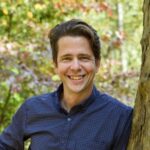 Chris is a landscape architect who has practiced for the last 15 years with internationally recognized firms that specialize in ecologically informed, place-based design. His completed projects range from therapeutic green roofs for hospitals, to the revitalization of Frederick Law Olmsted-designed parks, to designs that have pushed the boundaries of ecological and sustainable design. He is driven to foster areas of ecological function and richness for the benefit of humans and other species. As Executive Director of the Trust, Chris serves as an advocate for nature, the environment, ecological research and education, while always being focused on creating an emotional and intellectual experience for all those visiting the Pennypack Preserve. Chris was a U.S. Peace Corps volunteer, serving as a natural resource management volunteer in a wildlife sanctuary in Thailand not far from the Mekong River. He holds a Masters of Landscape Architecture from the SUNY College of Environmental Science and Forestry, and a Bachelors in Environmental Studies from the University at Buffalo.
Chris is a landscape architect who has practiced for the last 15 years with internationally recognized firms that specialize in ecologically informed, place-based design. His completed projects range from therapeutic green roofs for hospitals, to the revitalization of Frederick Law Olmsted-designed parks, to designs that have pushed the boundaries of ecological and sustainable design. He is driven to foster areas of ecological function and richness for the benefit of humans and other species. As Executive Director of the Trust, Chris serves as an advocate for nature, the environment, ecological research and education, while always being focused on creating an emotional and intellectual experience for all those visiting the Pennypack Preserve. Chris was a U.S. Peace Corps volunteer, serving as a natural resource management volunteer in a wildlife sanctuary in Thailand not far from the Mekong River. He holds a Masters of Landscape Architecture from the SUNY College of Environmental Science and Forestry, and a Bachelors in Environmental Studies from the University at Buffalo.
Andy Pitz, French & Pickering Creeks Conservation Trust (retired)
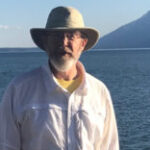 A key leader and thinker within the conservation community, Andy has spent his entire professional career working to permanently protect Pennsylvania’s natural resources. From 1986 to 2012, he worked in various capacities for Natural Lands, where he coordinated public-policy activities, developed strategic and ecological management plans, supervised transactions on hundreds of projects, and initiated several landscape-scale conservation efforts. Pitz retired as the executive director of the French and Pickering Creeks Conservation Trust in 2019. Under his leadership, the organization has expanded its staff and conservation holdings, achieved accreditation, developed a new strategic plan, increased revenue, and undertook the largest conservation project in its 50-year history.
A key leader and thinker within the conservation community, Andy has spent his entire professional career working to permanently protect Pennsylvania’s natural resources. From 1986 to 2012, he worked in various capacities for Natural Lands, where he coordinated public-policy activities, developed strategic and ecological management plans, supervised transactions on hundreds of projects, and initiated several landscape-scale conservation efforts. Pitz retired as the executive director of the French and Pickering Creeks Conservation Trust in 2019. Under his leadership, the organization has expanded its staff and conservation holdings, achieved accreditation, developed a new strategic plan, increased revenue, and undertook the largest conservation project in its 50-year history.
Pitz was a founder of PALTA and served as president for six of the organization’s early years. He was instrumental in the hiring of PALTA’s first executive director in 2000 and the passage of the Conservation and Preservation Easements Act in 2001. He rejoined the board in 2013 and served until his retirement.
He has also been active in the Climate Reality Project as a presenter and activist. He participated in one of the first groups trained by Al Gore in 2007, and in the following years presented more than 80 times in 15 states, focusing on the links between land conservation and climate change.
Todd Pride, President, Legacy Land & Waters Partners; Commissioner, PA Game Commission District 8
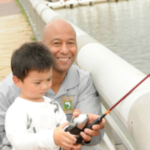 Todd, appointed to the PA Game Commission as the commissioner for District 8 in 2022, is the President of Legacy Land & Waters Partners, a new conservation and wildlife organization focused on the preservation of culturally-significant and strategic natural resource properties, expanding diversity in conservation and mission-driven organizations and training of students and adults in fishing, hunting heritage, agriculture, and conservation activities. Todd previously served as Managing Director of The Land Conservancy for Southern Chester County (TLC) and remains one of the only professionals of color managing a conservation organization.
Todd, appointed to the PA Game Commission as the commissioner for District 8 in 2022, is the President of Legacy Land & Waters Partners, a new conservation and wildlife organization focused on the preservation of culturally-significant and strategic natural resource properties, expanding diversity in conservation and mission-driven organizations and training of students and adults in fishing, hunting heritage, agriculture, and conservation activities. Todd previously served as Managing Director of The Land Conservancy for Southern Chester County (TLC) and remains one of the only professionals of color managing a conservation organization.
Prior to this, he led the Mid-Atlantic Youth Anglers & Outdoors Partners organization since 2008 as their Managing Partner and Lead Coach, headquartered on the border of Chester and Lancaster County in Nottingham, PA and in Philadelphia, PA. The Mid-Atlantic organization has been a nationally recognized fishing, hunting heritage, conservation and diversity training operation having trained and introduced over 12,000 diverse youth and adults to our 5-state region’s outdoor natural resources (PA, NY, NJ, DE, MD). Land preservation has been the core of these activities around protecting and enhancing wildlife habitats in the Delaware River and Chesapeake Bay Watersheds. Prior, Todd brings over 20 years in corporate management experience in the financial services and merchant banking industry. Todd is an avid hunting heritage and fishing trainer and spends as much time as he can on the water or in our region’s beautiful natural resource areas.
Lauren Pregmon Tetreault, Attorney, Pregmon Law Offices
 Lauren Pregmon Tetreault grew up in Philadelphia, Pennsylvania and attended Kenyon College where she received a Bachelor of Arts in Economics. After graduating cum laude from Kenyon, Lauren attended Wake Forest University where she received her law degree. While at Wake Forest, Lauren studied in both London and Venice.
Lauren Pregmon Tetreault grew up in Philadelphia, Pennsylvania and attended Kenyon College where she received a Bachelor of Arts in Economics. After graduating cum laude from Kenyon, Lauren attended Wake Forest University where she received her law degree. While at Wake Forest, Lauren studied in both London and Venice.
After graduation from law school, Lauren moved to Atlanta to practice commercial real estate law for Parker, Hudson, Rainer and Dobbs. It was not long, however, before Lauren had the opportunity to relocate to Philadelphia to partner with her mother, Patricia, at Pregmon Law Offices. Since 2000, Lauren has practiced general real estate with a strong emphasis on conservation law. Lauren is proud to have counseled land trusts and landowners in conservation transactions which have resulted in thousands of conserved acres throughout the Commonwealth. As a frequent lecturer on conservation easements, she shares her passion for protecting critical natural resources with seasoned professionals as well as new members of the conservation community.
Diane Rosencrance, Executive Director, Delaware Highlands Conservancy
 Formerly a senior director at Natural Lands, Diane joined the Conservancy in 2016 with twenty years’ experience in land conservation. She is a registered landscape architect and her portfolio includes assisting landowners in preserving their properties through conservation easements and fee-simple transactions, landscape and watershed-scale projects, stewardship and trail plans, and park master plans. Diane has a B.S. in landscape architecture from Temple University.
Formerly a senior director at Natural Lands, Diane joined the Conservancy in 2016 with twenty years’ experience in land conservation. She is a registered landscape architect and her portfolio includes assisting landowners in preserving their properties through conservation easements and fee-simple transactions, landscape and watershed-scale projects, stewardship and trail plans, and park master plans. Diane has a B.S. in landscape architecture from Temple University.
Steve Schiffman, Schiffman Sheridan & Brown, P.C.
Steven J. Schiffman concentrates his practice in the fields of business, taxation (including business and estate planning and administration), commercial loans, bank-asset recovery, and workout and nonprofit corporation law. He also provides counsel in the areas of general litigation, real estate and personal injury. Steve is a graduate with distinction of the Pennsylvania State University, where he received a B.S. degree in 1974. In 1977, he graduated from Capital University School of Law with a Juris Doctorate magna cum laude, followed by a master’s of law in taxation from Temple University of Law in 1983. After graduation from law school in 1977, Steve served as an assistant attorney general with the Pennsylvania Department of Revenue until 1980.
Kyle Shenk
 Kyle serves as The Conservation Fund’s Pennsylvania state director, located in Harrisburg. A native of Lancaster, he brought his lifelong love of the Pennsylvania outdoors to The Conservation Fund in 2007.
Kyle serves as The Conservation Fund’s Pennsylvania state director, located in Harrisburg. A native of Lancaster, he brought his lifelong love of the Pennsylvania outdoors to The Conservation Fund in 2007.
He oversees all aspects of the Fund’s work in Pennsylvania, focusing on high-priority conservation acquisitions and mitigation-fund management. The Conservation Fund has protected over 100,000 acres in the commonwealth through real estate transactions, bridge financing, and implementation of mitigation programs. Working with the nonprofit, business, and government sectors, Kyle spearheads conservation projects at multiple levels, from creating new local parks to expanding the footprint of state and federal lands.
He has a B.S. in geoenvironmental studies/GIS from Shippensburg University, and a M.S. in Community and Regional Planning from Temple University. Kyle is a former president of the Capital Area Greenbelt Association, and has served on the board of Green Urban Initiative. Kyle lives with wife and daughter in Camp Hill, and can often be found floating on the Susquehanna River or hiking through St. Anthony’s Wilderness.
Tami J. Shimp, VP Development & Community Relations, Berks Nature
Since joining the staff of Berks Nature in 1997, Tami has held the roles of Environmental Project Manager, Land Protection Specialist, Director of Land & Cultural Resources, and Senior Conservation Specialist and Director of Development. She holds a degree in Environmental Resource Management from Pennsylvania State University.
Born and raised in Berks County, Tami’s passion has always been focused on protecting the natural resources that make our community so special. She enjoys sharing her experience in both conservation efforts and fundraising with others in our community. Tami, her husband Todd and sons Paul, Charlie, and Johnny live in South Heidelberg Township. Family time typically includes spending time outside in nature!
Jeff Swinehart, Chief Operating Officer, Lancaster Farmland Trust
Jeff Swinehart has been the Chief Operating Officer of Lancaster Farmland Trust since 2019. Prior to this role he served as the Trust’s Deputy Director since 2006. With 18 years of land trust experience, Jeff focuses upon the preservation of Lancaster County’s agricultural land resources principally through the acquisition and stewardship of conservation easements. He has expertise in easement acquisition and defense, stewardship, water quality initiatives, grant management, and outreach to culturally diverse communities.
During his tenure, Jeff and his team have built Lancaster Farmland Trust’s easement portfolio to nearly 500 easements and 30,000 acres, which is the largest easement portfolio in Pennsylvania. He is also responsible for supervision of the Trust’s Stewardship and Municipal Outreach programs, and is actively engaged in the fundraising, general administration, strategic planning and community relations efforts of the Trust.
Jeff graduated with a Master’s degree in Public Administration from the Pennsylvania State University and has a Bachelor of Science Degree in Geography, plus minors in Geology and Regional Planning from Mansfield University.
As a lifelong resident of Lancaster County, Jeff spent his childhood in the southern end of the county enjoying the rural way of life and working on a family owned dairy farm. He currently resides in suburban Manheim Township with his wife and two children. Jeff enjoys hunting, fishing, gardening, preparing gourmet meals, be active in his son’s Cub Scout Pack, and visiting family in northern PA and the Finger Lakes region of NY.
Emma Thompson, Land Protection and Stewardship Coordinator, North Branch Land Trust
Emma Thompson comes to North Branch Land Trust with a passion for conservation and an enthusiasm to instill that passion in others. She was previously in an environmental consulting role and prior to that, she was a forester for the DCNR Bureau of Forestry.
Emma graduated from Virginia Tech with a graduate degree in Forestry and an undergraduate degree in Public and Urban Affairs focused on Public Policy and Leadership and Social Change.
In her free time, Emma enjoys being active outdoors with her dogs hiking, hunting, biking, and kayaking.
Shelly Tichy, President, Westmoreland Conservancy
Shelly Joined the all-volunteer Westmoreland Conservancy October 2000 and stepped up to the Board in 2001. She has served as secretary, treasurer, and vice president at various times, and as president from 2008 – 2014, and again from 2016 – present. Westmoreland Conservancy achieved accreditation in 2013 and renewed in 2019. In addition to her work with the Conservancy, Shelly works full time and has also volunteered at an assisted living facility for the past 18 years doing a music & memories program with the residents. She retired from teaching ballroom dancing after 30 years.
Sally Zaino, President, Manada Conservancy
Sally is one of the original founders and Board members of Manada Conservancy and has served in several roles since its inception in 1997, both as a volunteer and as former Executive Director. She chaired the East Hanover Township Environmental Advisory Council for 10 years, is a former township supervisor and planning commission member. She has represented Manada Conservancy at a number of regional planning committees, including regional comprehensive planning, and the recent Return on Environment Study for Dauphin County, an analysis of the economic value of conserving natural resources. She is also a part-time writer, editor, and poet.
Staff
Andrew Loza, Executive Director
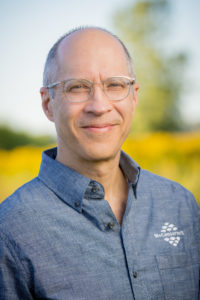
Andy Loza has served since 2000 as executive director of WeConservePA where he leads public policy efforts, plans and implements technical assistance and educational programs, writes and edits technical guidance, and directs a terrific staff. His work is informed by seven years as a land trust executive director and leading land use planning, environmental, conservation, and economic development, and trail initiatives for county government. He holds degrees from the University of Pittsburgh and Lehigh University.
In his spare time, Andy enjoys gardening, reading, and challenging the aging process in the gym. Among his top passions are music and eating. He’s the proud father of two adult children. He bicycles to work because he can and it’s good for the planet as well as his wallet and health.
Irina Beal, GIS Analyst
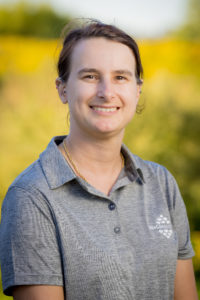
Irina Beal has been with WeConservePA since 2020 as the GIS Analyst who manages PA’s Conserved Land map and geodatabase. She actively collaborates with other PA land trusts and assists with spatial analyses and map creation – both physical and digital.
Her Master of Science in Geology from Temple University led her to remotely map historic geomorphology of Assateague Island National Seashore in Maryland as well as collected in-situ beach profiles for the Gateway National Recreation Areas along the Raritan Bay (NJ). Her work then took her to Delaware where she assisted in the planning and installation of living shorelines that utilized coir logs, oyster castles, and bagged recycled oyster shells to assist in sediment trapping, marsh restoration, and bivalve recruitment.
Irina enjoys the outdoors as a hiker in the woods or a biker through the twisties. When not in the forest, she can be found on a tennis court or golf course.
Michele Cook, Office & Project Administrator
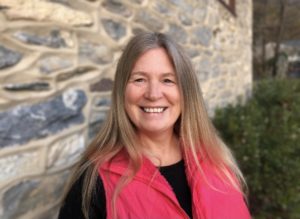 Michele joined WeConservePA in 2021. In her role, she provides assistance for a variety of administrative tasks that helps to ensure the smooth running of WeConservePA.
Michele joined WeConservePA in 2021. In her role, she provides assistance for a variety of administrative tasks that helps to ensure the smooth running of WeConservePA.
Before joining WeConservePA she has had years of administrative and office management experience and recently was a membership and event assistant at a non-profit. She has a Business Administration degree from York College of Pennsylvania. Michele is a Pennsylvania native, raised in the Endless Mountain region of the Commonwealth. Michele spends time on the trails of Pennsylvania and enjoys discovering new places while traveling with her husband.
Justin Hollinger, Legal Director
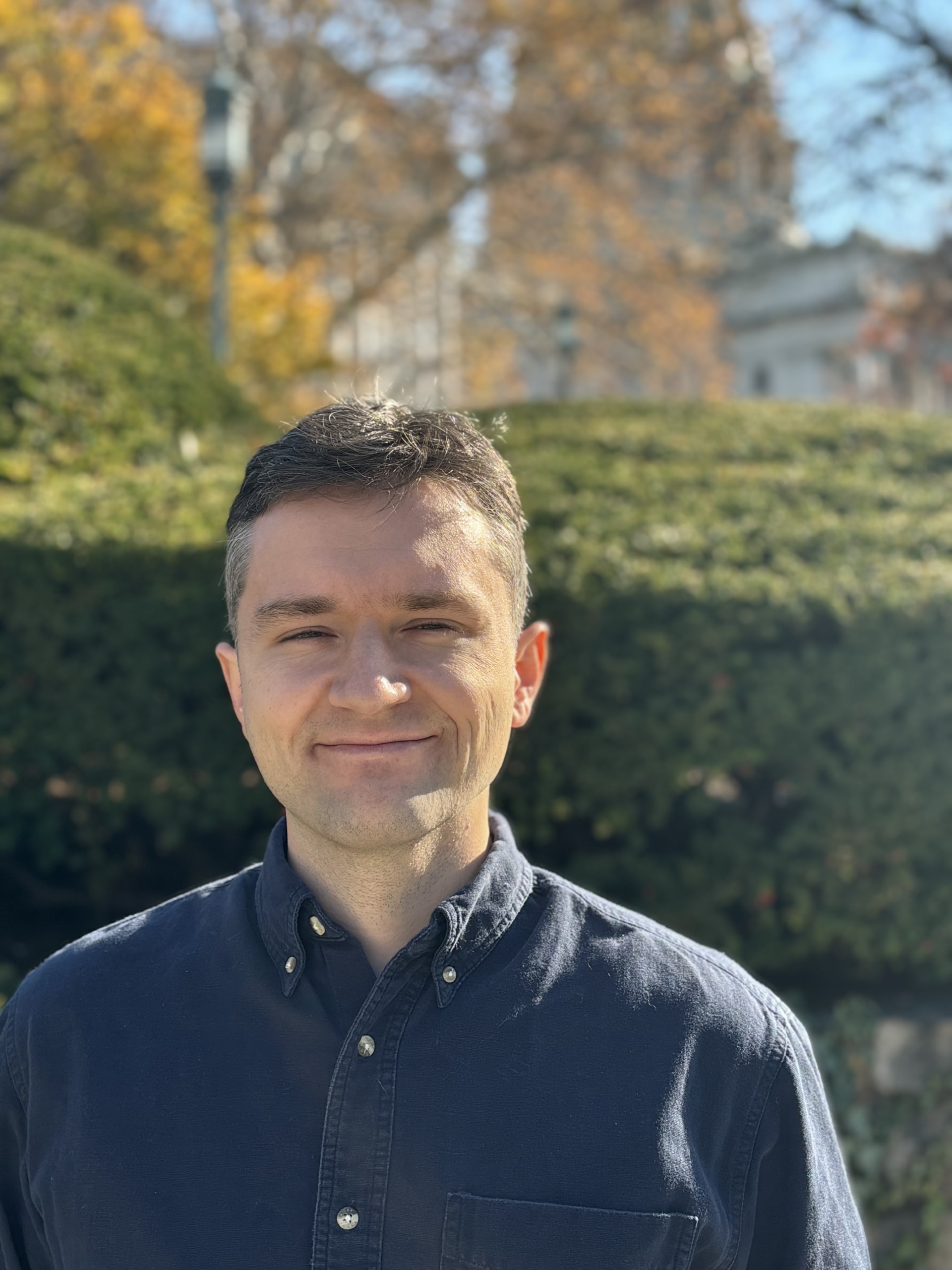 Justin Hollinger joined WeConservePA in 2023. A member of the PA Bar, Justin provides legal resources to PA land conservation organizations. His projects include maintaining and updating WeConservePA’s library of model documents and resources, providing legal education, facilitating ongoing cooperation between land conservation attorneys and land conservation personnel, and providing direct legal services.
Justin Hollinger joined WeConservePA in 2023. A member of the PA Bar, Justin provides legal resources to PA land conservation organizations. His projects include maintaining and updating WeConservePA’s library of model documents and resources, providing legal education, facilitating ongoing cooperation between land conservation attorneys and land conservation personnel, and providing direct legal services.
Prior to joining WeConservePA, Justin represented Pennsylvania affordable housing nonprofits in complex real estate transactions. He received his J.D., summa cum laude, from Drexel University Thomas R. Kline School of Law, and his B.A., magna cum laude, from Temple University.
In his free time, Justin can be found hiking, cycling, camping, and fishing on PA trails and waterways, and spending time with his spouse and toddler in Lancaster, PA.
Emily Gates, Education & Outreach Manager

Emily joined the WeConservePA team in fall 2024. She plans and administers WeConservePA conferences, workshops, roundtables, and other programs. She maintains the organization’s communication channels and supports all conservation and trails assistance programs, such as the Conservation Easement Assistance Program and Regional Trail Workshop Grants.
She comes to WeConservePA with over 15 years of non-profit experience, including work with parks, recreation, trails, and conservation professionals. She holds a BS in Environmental Studies from the State University of New York College of Environmental Science and Forestry.
Outside of work she enjoys the outdoors by gardening, kayaking, and hiking with her dog, Cobalt. Other interests include cooking, creating art, and seeing live music.
Rebecca Buckham, Project Manager

Rebecca joined the WeConservePA team in 2025 to help lead special projects and provide communications support.
She brings 15 years of experience in higher education, human services, and nonprofit communications and development. Rebecca earned an MA in English from Villanova University, where her graduate thesis on Paradise Lost explored a place-based ethic of agrarian labor in Milton’s representation of Eden.
Driven by a deep personal commitment to the natural world, Rebecca loves to turn compost, watch birds, plant (native) things, and get outside for local Appalachian Trail hikes. She serves on the Board of Directors for Yellow Breeches Watershed Association and is currently completing certification to become a Master Watershed Steward with Penn State Extension.
She also enjoys Shakespeare, sourdough bread baking, and roller skating with her nieces and nephews.
WeConservePA Member Organizations
Regular voting membership is open to nonprofit organizations who support WeConservePA’s goals and who: acquire land or conservation easements for conservation purposes; or provide stewardship of land or conservation easements; or assist organizations in accomplishing land trust work; or generally advance the cause of land and water conservation.
List of WeConservePA member organizations
Join as an organizational member.
For more information on WeConservePA membership and sponsorship, please reach out to info@WeConservePA.org.
Accomplishments
Public Policy Endeavors and Successes
Ongoing for more than two decades
Advocacy for Conservation Investments. For more than two decades, WeConservePA has led campaigns to boost state investments in land conservation, environmental restoration, and outdoor recreation and turned back numerous legislative efforts to eliminate or slash the investments made by the state’s Keystone Recreation, Park and Conservation Fund, the Environmental Stewardship Fund, and the Agricultural Conservation Easement Purchase Fund. WeConservePA’s continuing efforts have ensured $3 billion in state conservation investments in the new millennium.
2022
The WeConservePA-led Growing Greener Coalition campaign results in a $100 million boost in state investments for conservation, State Parks and Forests infrastructure, and recreation projects and a $220 million investment in a newly created Clean Streams Fund.
2020
Congress fully and permanently funds the Land and Water Conservation Fund, the culmination of years of advocacy by WeConservePA and other organizations. Going forward, several million more federal dollars will be invested each year in Pennsylvania’s public lands.
2018
Governor Wolf signs Act 98 of 2018, which better protects from liability those who open their land to public recreation, a culmination of WeConservePA efforts begun in 2006.
2018
After a whirlwind campaign by WeConservePA and allies, Governor Wolf signs Act 45 of 2018, which requires school districts, local governments, and others to prove to court that there is no reasonable and prudent alternative before taking a conservation easement by eminent domain.
2018
WeConservePA agrees to lead a reboot of the Growing Greener Coalition and serve as its managing partner.
2017
The PA Supreme Court adopts the arguments made by WeConservePA in its amicus curiae briefs (2014 and 2016) in defense of parks and other open space lands held by government. The court rejects the arguments of the developer and municipality who sought to liquidate a portion of a park for a housing development.
2016
WeConservePA advocates for and achieves changes in state tax law to broaden realty transfer tax exclusions to include more types of conservation projects.
2016
WeConservePA leads a successful charge to prevent large-scale commercial development in state parks, stopping a fast-tracked bill that would have facilitated the development.
2015
Congress makes the conservation easement tax incentive permanent, the fruit of years of advocacy by LTA, WeConservePA, and land trust partners.
2013
Governor Corbett signs Act 115 of 2013, an amendment to the open space law. WeConservePA achieves its goals of ensuring that voter-approved open space taxes may be repealed only through referenda and accommodating municipal needs for spending flexibility while keeping dedicated open space money focused on open space.
2012
WeConservePA leads the campaign that derails the fast-tracked “sell-parks-for-cash” bill that threatened the permanence of parks.
2011
Governor Corbett signs Act 44 into law. The product of a multi-year campaign by WeConservePA, the Act amends the Agricultural Area Security Law to ensure that state-funded agricultural easements can’t be extinguished after 25 years.
2011
Governor Corbett signs Act 8 of 2011 to prohibit private transfer fees in real estate transactions. WeConservePA succeeds in carving out an exception for conservation easements, strengthening the ability of land trusts to raise funds for stewardship.
2011
The 9th Circuit Court rules for WeConservePA and its six partners, who challenged the Department of Energy’s designation of the Mid-Atlantic National Interest Electric Transmission Corridor (a designation that ignored good energy planning and conservation, giving federal preference for eminent domain and coal-fired power).
2010
The PA Supreme Court rules for conservation in the Erie Golf Course case, preventing municipalities from liquidating their protected open spaces for easy revenue. In its ruling, the court quotes WeConservePA’s amicus curiae brief and other briefs inspired and supported by WeConservePA.
2009-2010
WeConservePA co-leads the coalition that successfully protects PA State Forests from a drilling free-for-all.
2006
Governor Rendell signs Act 154 into law. The Act, a WeConservePA legislative priority, empowers local governments to give land, easements and cash to land trusts in support of conservation.
2006
WeConservePA’s initiative snowballs into a nationwide push, leading to President Bush signing expanded conservation easement tax incentives into law.
2005
Responding to WeConservePA and partners’ outreach, Pennsylvanians vote 60.5% to 39.5% to authorize a $625M Growing Greener bond. WeConservePA’s advocacy results in $80 million dedicated to farmland preservation and $90 million to open space protection – dwarfing the open space monies previously available under Growing Greener.
2005
WeConservePA initiates an ambitious push to expand federal conservation easement tax incentives as most conservation organizations are hunkered in defensive positions as a result of Congressional Joint Committee on Taxation proposals to gut the existing tax deduction.
2002
WeConservePA plays a lead role in the establishment of a dedicated funding source – a landfill tipping fee – to support the extension of Growing Greener.
2001
Governor Ridge signs Act 29, the Conservation and Preservation Easements Act. WeConservePA was the principal advocate for the law, which greatly strengthens the effectiveness of conservation easements.
Milestones in Technical Assistance, Training, and Education
2001
- Held six regional land trust gatherings.
- Began building relationships outside the land trust community.
- Held half-day PA Land Trust Meeting with 65 attendees during the Mid-Atlantic Land Trust Conference co-organized by WeConservePA.
- Published 1st guidance: the Guide to the Conservation and Preservation Easements Act.
2002
- Launched the Technical Assistance Program: supported six guided organizational assessments and provided direct staff assistance by phone, email and in-person.
- Published the first installments of the 18-part Stories of Land and People series.
2003
- Held the 1st Pennsylvania Land Conservation Conference with 130 attendees and two days of programming.
- Launched ConserveLand.org.
2004
- Made 1st Conservation Easement Assistance Program grants.
- Critiqued proposed changes to and advocated for strengthening of Land Trust Standards & Practices.
- Established the Lifetime Leadership Award.
2005
- Published 1st edition of the Model Grant of Conservation Easement and Declaration of Covenants.
2006
- Expanded Conservation Easement Assistance Program to cover amendments, baseline documentation and signage.
- Introduced the ConserveLand print newsletter.
2007
- Published In Their Own Words and distributed 16,000 copies.
- Expanded the Pennsylvania Land Conservation Conference to three days with 315 attending. (Attendance going forward always exceeds 300 until the Covid-19 cancellation of 2020.)
- Established the local government Conservation Leadership Award.
- Published the 1st edition of the Model Trail Easement Agreement.
2008
- Held two-day Natural Gas & Land Conservation Conference in response to the Marcellus boom.
- Published Public Dedication of Land and Fees-in-Lieu for Parks and Recreation, WeConservePA’s first guidance regarding the Municipalities Planning Code.
2009
- Published guides on stewardship fees, pledges and donation agreements, and more as WeConservePA moved to fill the many gaps in technical guidance available to land trusts.
- Published the PA Land Choices land use curriculum for schools.
2010
- Debuted ConservationTools.org with guidance on dozens of conservation and planning tools and topics, expert listings, and more.
2011
- WeConservePA’s greatly expanded its guidance, publishing four new model documents associated with easement transactions and twenty guides featuring original content.
- Published the 1st natural gas drilling violations report, which drew attention across the continent.
2012
- Teamed up with DCNR, et al. to promote outdoor recreation, expanding Get Outdoors PA to involve local government and land trusts.
2013
- Published WeConservePA’s first model documents to go beyond easement transactions: a release of liability agreement and grant of purchase option.
- Initiated effort to improve the Land Trust Accreditation system.
- Took responsibility for facilitating the previously quiescent EAC Network for environmental advisory councils.
2014
- Published WeConservePA’s 1st model ordinance (riparian buffer protection) and 1st model organizational policy (easement amendment).
- Published groundbreaking manual on Universal Access Trails.
2015
- Facilitated the development of the Land Stewardship Network peer group.
- Published Nature Play to promote nature play by children and highlight its criticality to conservation.
2016
- Created an on-line gallery of sign images to inspire and assist organizations in sign design.
- Published model documents for obtaining rights of first refusal and offer.
- Participated substantially in developing the new edition of Land Trust Standards and Practices.
2017
- Launched the mentorship program.
- Published WeConservePA’s 100th original guide (and several more).
- Held 1st Western PA Land Conservation Summit, attracting 87 individuals, the majority being land trust board members, over the two days.
2018
- Launched comprehensive, interactive online maps of privately and publicly conserved PA lands and of the service areas of conservation organizations.
- Created the groundbreaking Model Declaration of Public Trust to help permanently protect publicly-held parks and open spaces.
2019
- Produced 17 new guides and rebuilt and updated 17 more, ensuring the continuing utility of WeConservePA guidance.
- Published the Model Permission for Encroachment and updated three more models.
- Organized the PA Greenways & Trails Summit.
2020
- Initiated and facilitated the coming together of the Diversity, Equity, Inclusion, and Justice Community for people working in conservation and expanded DEI programming.
- Adapted swiftly to the Covid-19 crisis, using emerging digital platforms to gather together and connect PA conservation staff and volunteers as well as national leaders, provide guidance and training, and disseminate guidance.
2022
- Organized a record number 26 conferences, workshops, seminars, and lectures as well as a half dozen roundtables—both in-person and virtual events.
History
WeConservePA started in 1991 as an informal gathering of land trust leaders seeking to advance common interests. These leaders incorporated the “Pennsylvania Land Trust Association” in 1995 to address and focus on the broad needs of land trusts—to take on initiatives and activities that no single organization could effectively handle or wish to handle on its own.
Since the 1990s, the organization’s mission has expanded to help people protect, wisely use, and enjoy what nature offers, whether that is through land trusts, local government open space programs, environmental advisory councils, trail groups, or other organizations.
Today, WeConservePA is made up of 70 dues-paying, voting conservation organizations as well as hundreds of individuals who contribute their time, energy, and money to the organization’s endeavors. The voting organizations elect the board and set WeConservePA’s purposes. (The organizations in turn count more than 100,000 Pennsylvanians as members and contributors.)
WeConservePA is registered with the Pennsylvania Bureau of Charitable Organizations and has held 501(c)3 tax status with the Internal Revenue Service since 1996. The organization adopted its present name with a vote of the member organizations and an amendment of its articles of incorporation in 2020.
Organizational Development Timeline
1995
WeConservePA incorporated.
1996
WeConservePA obtained 501(c)(3) tax status.
2000
1st executive director hired.
Board of Directors adopts 1st strategic plan.
2002
2nd staff position established.
2004
1st edition of WeConservePA’s public policy agenda adopted.
2005
Policy Advisory Council established.
2005
2nd strategic plan adopted.
2005
3rd staff position established.
2006
At board’s recommendation, membership amends bylaws to provide automatic removal of directors for poor attendance.
2007
First broad solicitation of individuals for contributions.
2010
3rd strategic plan adopted.
2016
4th strategic plan adopted.
2016
4th staff position established to beef up WeConservePA’s communications and outreach.
2020
The voting member organizations vote to change the organization’s name from the Pennsylvania Land Trust Association to WeConservePA. The articles of incorporation are amended accordingly.
2021
5th strategic plan adopted.
Strategic Plan 2022-2028
WeConservePA's Mission
WeConservePA helps people care for, wisely use, and enjoy what nature offers. We help organizations and individuals to effectively and efficiently conserve land, protect and restore waterways, implement sustainable practices, and connect people to the outdoors. We foster understanding of conservation and advocate for pro-conservation governmental policy to promote a high quality of life for all.
WeConservePA's Distinct Role
Who WeConservePA Is
Seventy dues-paying, voting conservation organizations elect the WeConservePA board of directors and set WeConservePA’s purposes. Hundreds of individuals associated with these organizations and other supporters contribute their time, energy, and money to WeConservePA. Coming together around common interests and joined by WeConservePA staff, these professionals, volunteers, and supporters constitute the WeConservePA community.
WeConservePA is a Pennsylvania nonprofit corporation registered with the Pennsylvania Bureau of Charitable Organizations and holding 501(c)3 tax status with the IRS.
What WeConservePA Does
WeConservePA brings leadership to a diverse array of organizations and individuals at work in communities across Pennsylvania. It builds communities of shared interests for land trusts, environmental advisory councils, trail groups, municipal open space programs, and others with conservation goals. It helps volunteers and professionals connect with and learn from one another, and provides them with resources, equipping them to make Pennsylvania a better place. And by uniting people who conserve land, protect and restore waterways, and foster healthy communities, WeConservePA creates a powerful advocacy voice for conservation.
Background
WeConservePA started in 1991 as an informal gathering of land trust leaders seeking to advance common interests. These leaders incorporated the “Pennsylvania Land Trust Association (PALTA)” in 1995 to address and focus on the broad needs of land trusts—to take on initiatives and activities that no single organization could effectively handle or wish to handle on its own.
Over time, the organization expanded its scope of activities to serve local governments, including their open space programs and environmental advisory councils; trail groups; and other organizations. In recognition of this evolution, its member organizations voted to adopt the organization’s present name in 2020.
WeConservePA’s member organizations count more than 100,000 Pennsylvanians as members and contributors.
WeConservePA's Vision
All Pennsylvanians will benefit from well-stewarded, thriving open spaces: the forests, farms, parks, urban gardens, greenways, and other open lands that safeguard our drinking water and reduce flooding; provide food and timber; offer hunting, fishing, nature watching, and other recreational opportunities; preserve scenic beauty; and deliver myriad other benefits. All will have the opportunity to be a part of prosperous communities that are economically, socially, and environmentally sustainable.
WeConservePA's Philosophy
Our lands are our lifeline. They clean the water we drink and the air that we breathe; they are the fields that grow our food and the forests that provide our wood; they are the homes of wildlife and places of beauty; they are the heart of our hunting, fishing, and nature-watching traditions.
The aims of conservation are as diverse as the lands being conserved, the communities in which the lands are located, and the people leading the efforts. Different circumstances lead to different concerns, priorities, and strategies.
Whether one feels that we should conserve nature for its own sake or for its utility to people, conservation is essential for human prosperity and healthy ecosystems for all life.
Redeveloping land, reinvesting in urbanized areas, using smart growth principles to guide development, and using natural infrastructure to manage water all contribute to creating prosperous communities that are economically, socially, and environmentally sustainable.
An effective conservation movement needs conservation organizations and the individuals comprising them to act ethically and strive for excellence; it prioritizes collaboration over conflict; it focuses on shared interests and respects the rights of all.
Organizations have a responsibility to be equitable and inclusionary in their operations and in their service to the public. This necessitates organization leaders, staff, and volunteers investing time in understanding what is involved in being equitable and inclusionary; it requires revisiting assumptions, long-held beliefs, and practices.
Whether living in urban, suburban, or rural environments, people benefit from getting outdoors and connecting with the land, feeling the sun, seeing the veins of a leaf, listening to the burble of a stream.
What Is Conservation?
The word conservation appears frequently in this plan (and, of course, conserve is fundamental to WeConservePA’s name). So, what does conservation mean?
Merriam Webster defines it as “a careful preservation and protection of something, especially planned management of a natural resource to prevent exploitation, destruction, or neglect.”
Wikipedia defines it as “the preservation or efficient use of resources…”
Wiktionary’s first definition is: “The act of preserving, guarding, or protecting; the keeping (of a thing) in a safe or entire state; preservation.” Its second definition is: “Wise use of natural resources.”
National Geographic’s encyclopedic entry defines it as “the act of protecting Earth’s natural resources for current and future generations.” The entry continues:
Earth’s natural resources include air, minerals, plants, soil, water, and wildlife. Conservation is the care and protection of these resources so that they can persist for future generations. It includes maintaining diversity of species, genes, and ecosystems, as well as functions of the environment, such as nutrient cycling…
WeConservePA uses conservation to mean taking action to ensure for present and future generations some or all of the following outcomes:
- The land will serve as natural infrastructure: absorbing rainwater to prevent erosion and flooding and recharge groundwater; filtering stormwater runoff of pollutants before they can enter waterways; and sequestering carbon in plants and soil.
- The land will be available and productive for logging, farming, hunting, and other activities that sustainably draw from nature.
- The land will provide habitat and support for the diverse species with which we share the planet.
- The land will provide other open space benefits such as scenic views and opportunities for outdoor recreation, reflection, and inspiration.
WeConservePA also looks at conservation as encompassing the active stewardship of land (for example, fencing forest to prevent deer overbrowse or redesigning trails to prevent stormwater runoff) and the active restoration of natural functions to degraded lands and waters (for example, reforesting riparian areas or establishing meadow on strip mined land). Even more broadly, conservation describes actions to live sustainably to ensure that future generations may enjoy nature, undiminished.
WeConservePA's Goals
WeConservePA seeks to:
- Increase the pace and improve the quality and efficiency of land conservation work.
- Ensure that land conservation is lasting (including parks and other public lands).
- Boost the knowledge and skill sets of conservation professionals and volunteers, and foster stronger, more equitable and inclusive organizations.
- Improve land use planning and advance sustainable practices at the local level.
- Raise understanding and support for conservation.
- Achieve conservation-friendly public policy.
WeConservePA pursues four strategies—described below—in support of these goals. (Note that each strategy supports multiple goals.)
WeConservePA's Strategies
Create resources
Create resources that facilitate excellence, effectiveness, and efficiency in conservation acquisitions, stewardship, land use planning, and other activities.
Train, connect, inspire, and assist
Train, connect, inspire, and assist people to empower them to achieve more in their conservation-related work.
Advocate for conservation
Advocate for pro-conservation governmental policy, foster understanding of conservation, and promote conservation-serving land trust standards.
Build WeConservePA
Build WeConservePA into a more effective organization.
Downloadable Strategic Plan
Download WeConservePA’s 2022-2028 strategic plan to view the remaining pages describing WeConservePA’s four strategies in more detail.


